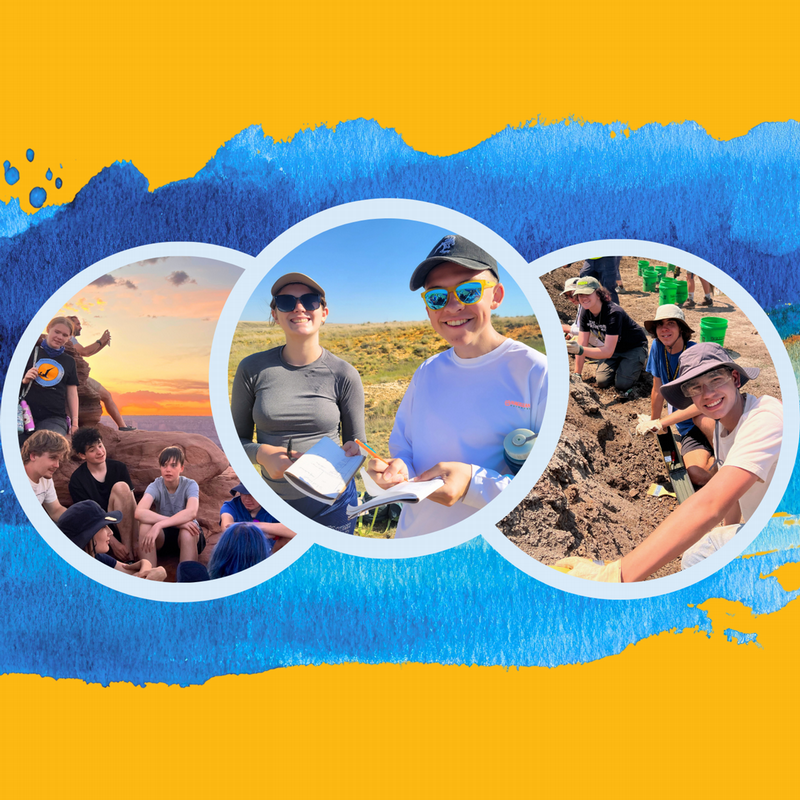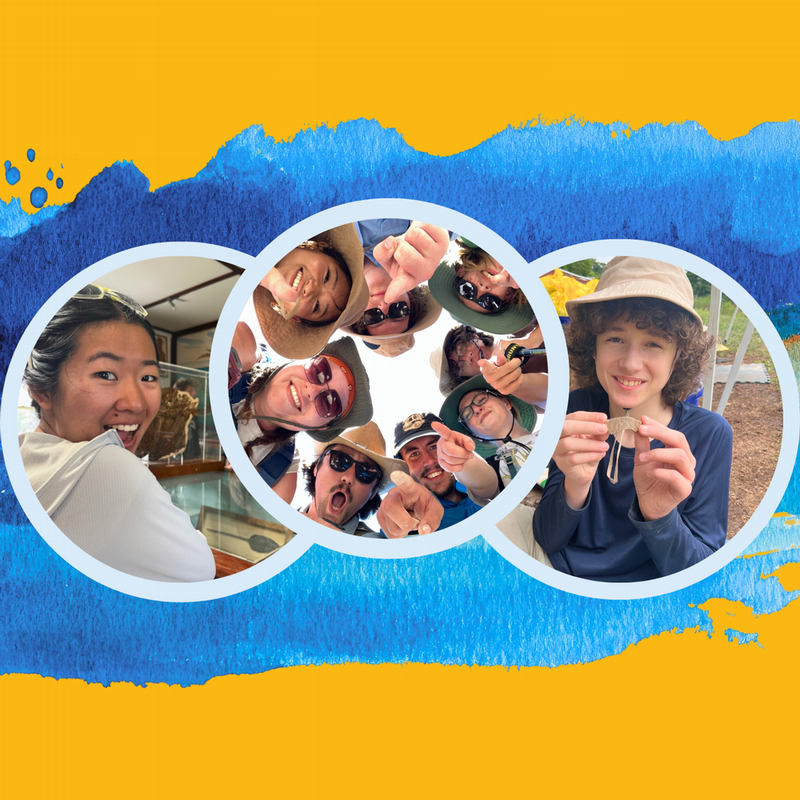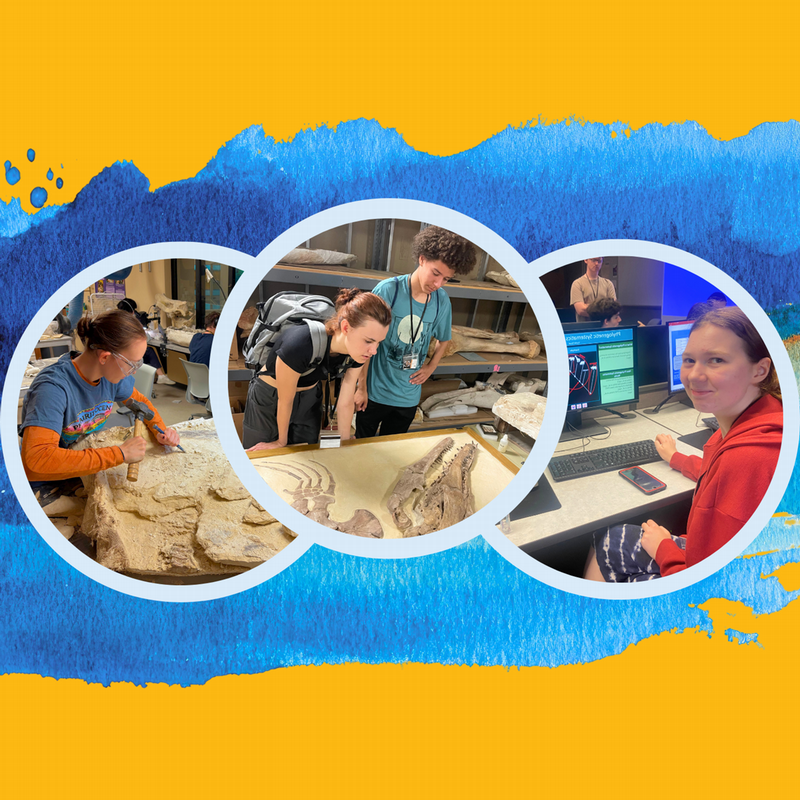Camping Trips
- Our field camps include extensive tent camping on a range of camp site types, including state/federal campgrounds, private campgrounds, and research stations. We will also make use of university dorms and hotels/AirBnBs when called for.
- As these programs typically take place in the middle of summer, conditions are often hot and sunny. some programs will include time in cooler conditions including caves, mountains, or areas where temperatures decrease noteably at night. Students should be well prepared for a range of temperature and weather conditions.
- Tents and sleeping pads are provided for students, with usually 2-3 students in an appropriately sized tent. We ask that participants not bring their own tents as they may not be appropriate for conditions in the camp, or sized properly for the campsites we reserve. Camp pads are typically thick foam or inflatable. Participants are welcome to bring their own sleeping pad if they desire. Participants must provide their own sleeping bags, pillows, and other such personal items.
- Camping trips usually include 2-3 indoor days between weeks out in the field. These days will include opportunities to do laundry. While we always make sure laundry facilities are avialable at the midway point, sometimes the logistics of the camp make the indoor component untenable.
- As we are camping, access to electrical outlets is limited. We strongly recommend students bring a portable power bank for their phone, and exercise good judgement in battery use. Chargers in the vehicles are reserved for staff to keep devices fully charged, as well as recharging cameras and other devices.
- While we do not do any heavy backpacking, the field camps are typically at least moderately physically demanding. Staff put a great deal of time, care, and effort into training students to mentally and physically adapt to the necessities of fieldwork. We know such activities can be quite challenging, and our central goal is helping students be succesful.
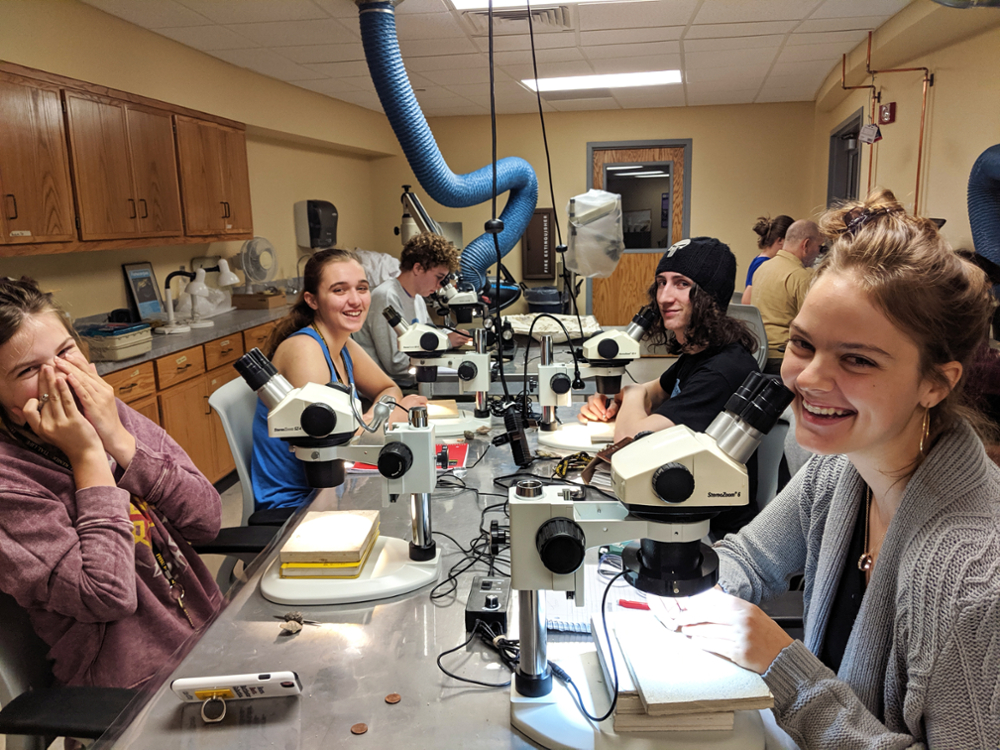
University Lab-Based Programs
- These camps primarily use university dormitory and dining hall facillities, with exceptions for in-program excursions where they may make use of a hotel or AirBnB as needed.
- Most activities are indoor in climate-controlled facilites. Participants should be prepared for occasional field trips that may include outdoor settings.
- Students will typically have at least one opportunity during two-week camps to do laundry.
- Students should expect to have a roommate during their time in the dormitories. If a student is attending with a friend, we can arrange they be paired together if requested in advance.
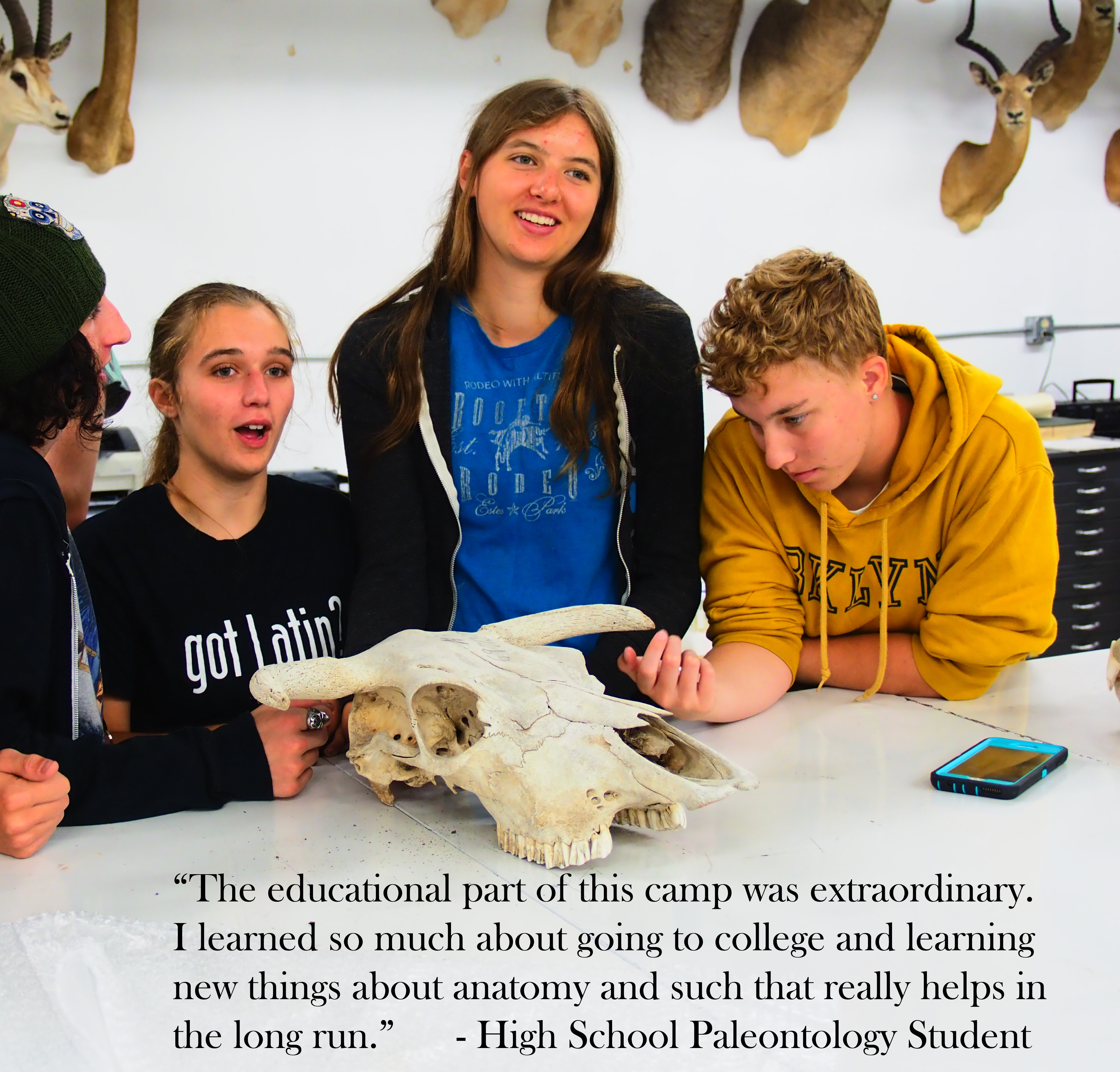
Blended Travel Programs
- These camps may include a combination of hotels/AirBnBs, field stations, university dorms, and camping. Conditions and facilites can vary widely. Participants should refer to information in the Camping and Lab-Based sections above for information about components of the Blended Travel Programs
- Approach to meals is adapted to the accomodations being used. Restaraunts are not typically used outside of closing dinners on the last night.
